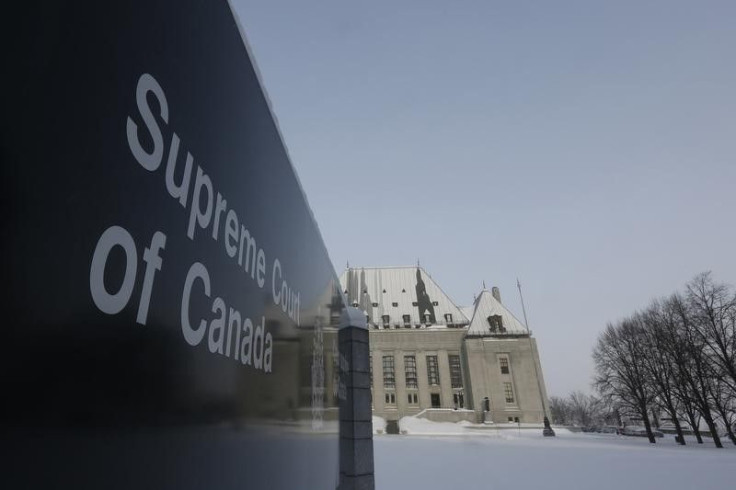Canada's High Court Gives Green Light To Assisted Suicide

OTTAWA (Reuters) - The Supreme Court of Canada decided on Friday to allow doctor-assisted suicide across the country under certain circumstances, while giving the government more time to pass a law governing the practice.
The decision came as officials confirmed that a patient had already been helped to die in the French-speaking province of Quebec.
The court had overturned a ban on physician-assisted suicide last February, putting Canada in the company of a handful of Western countries to make it legal.
But it had said the decision would not take effect for a year, giving the government time to produce legislation.
The work got off schedule because of the October election and the defeat of the Conservative government by Prime Minister Justin Trudeau's Liberals. The newly elected justice minister had asked for the decision to be suspended for an extra six months.
Instead, the court gave the go-ahead for assisted suicide to begin now under certain conditions and granted the federal government four more months to come up with a national law.
The Canadian government said it respected the judgment and the additional time would help it develop an approach "that protects the most vulnerable among us while respecting the inherent dignity of all Canadians."
Polls show physician-assisted suicide has broad support but the issue has divided politicians in Parliament as they grapple with how to protect vulnerable Canadians while respecting their rights and choices at the end of life.
The court ruled doctors would be allowed to facilitate the death of patients in Quebec, which had already put its own law into effect in December.
Since the change in provincial law on Dec. 10, one person carried out an assisted suicide in Quebec City, a spokeswoman for the health and social services center for the Quebec City region said in an email.
There is no way to say whether this was the first assisted-suicide under the new laws as Quebec does not currently keep such statistics, said Joanne Beauvais, a spokeswoman for provincial Health Minister Gaetan Barrette.
The Supreme Court ruling said people outside Quebec can apply to their provincial superior court for judicial authorization "to those who wish to exercise their rights" to doctor-assisted death.
Friday's decision was split 5-4, with Chief Justice Beverley McLachlin and three others disagreeing with giving an exemption to Quebec and to other individuals.
The case is Carter v. Canada (Attorney General), 2016 SCC 4.
(With additional reporting by Allison Lampert in Montreal; Additional writing by Andrea Hopkins and Jeffrey Hodgson in Toronto; Editing by Paul Simao and Sandra Maler)



























